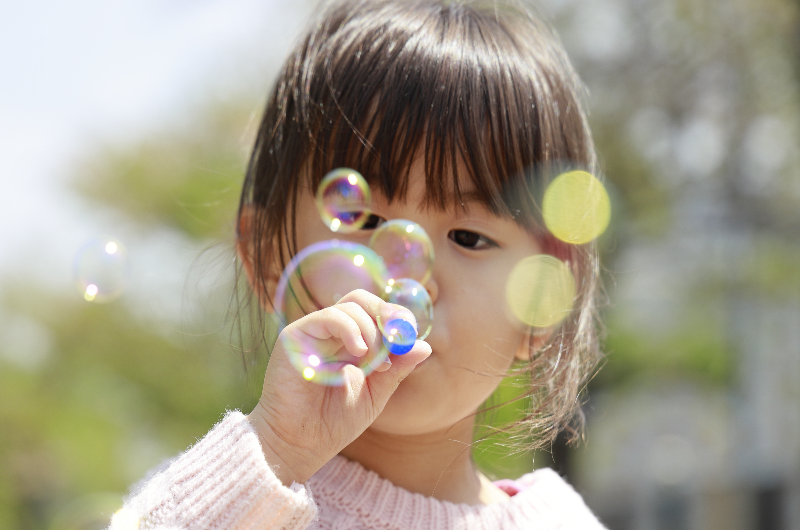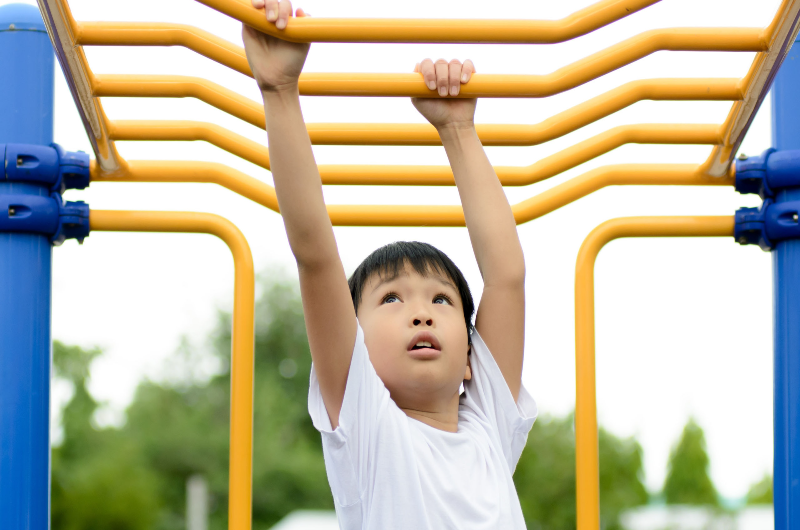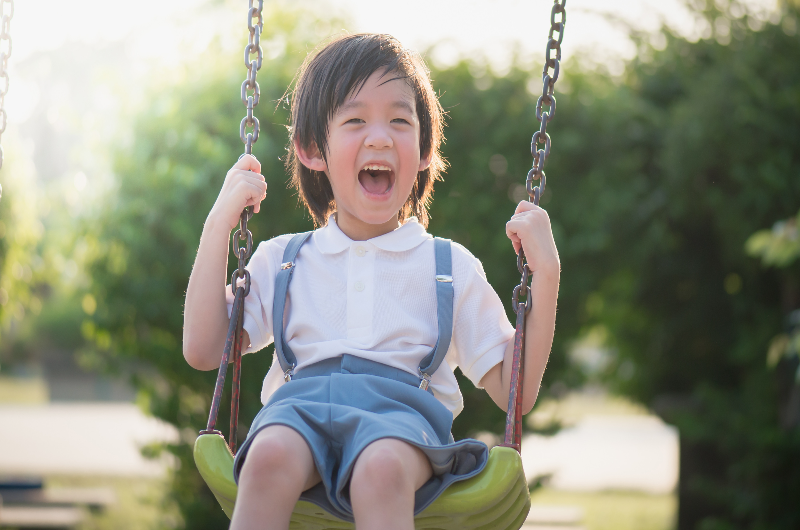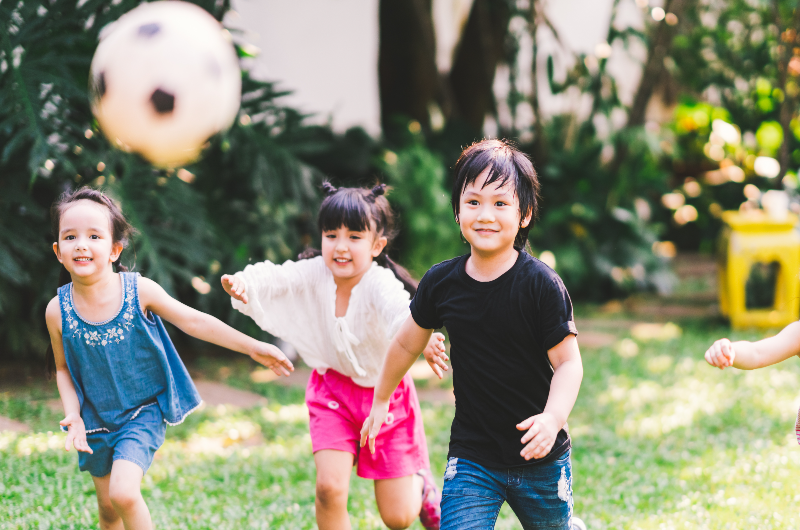11 Unexpected Ways Your Child Learn from Being Outdoors
Outdoor learning can be simply defined as experiential learning in, for, or about the outdoors. The philosophies and theories about outdoor education tends to emphasize the effect of natural environments on human beings, the educative role of stress and challenge, and experiential learning.
11 unexpected ways nature nurtures your child's growth.
“All work and no play makes Jack a dull boy, all play and no work makes Jack a mere toy”
- Maria Edgeworth
How do you respond when your child asks, “Can I play outside, mummy?” Are you hesitant to agree? Do you deflect the question and find indoor alternatives? Or do you embrace outdoor play as a learning opportunity?
These can be difficult questions to answer for today’s working parents, who have increasingly limited free time in their busy schedules. In their desire to raise an exceptional child, they might fill up their children’s days, sending them to extra classes or hiring a home tutor. Free time for children to just play outdoors thus drops to zero. But did you know there are numerous benefits of outdoor learning in a child’s early years?

The Link Between Playing Outdoors and a Child’s Development
The reality is that nowadays, outdoor playtime is often lower on the priority list of activities available to enrich a child’s education. After all, when your child is outdoors, it seems like he/she is just having fun and not actually learning anything. This couldn’t be farther from the truth. Research shows that neglecting outdoor play time increases the risk of academic underachievement. But why is that?
A study published in the Porto Biomedical Journal by Dr Bento and Dr Dias shows there are key lessons provided by playing outdoors. What’s more, these lessons can’t be replicated inside a classroom.
Learning in a classroom is like a greenhouse. Playing indoors lets parents or teachers control the conditions of learning. But playing outdoors helps to develop an exceptional child because there are more variables beyond your control and more stimuli to boost your child’s development in virtually every aspect: cognitive, physical, and emotional.
For starters, exposure to the environment lets your child get back in touch with nature. And some of the immediate benefits of being outdoors include healthier bone development, a stronger immune system, and improved overall physical ability.
Other benefits are far-reaching and profound. In addition to fulfilling your child’s innate curiosity and desire to explore nature, outdoor learning in the early years has benefits for your little one’s executive functions and overall development.
Executive functions are important cognitive skills that enable your child to acquire new information and use it in different situations. Nurturing these skills enables your child to truly become exceptional and paves the way to success.
Let’s take a closer look at 11 invaluable lessons Mother Nature can teach your child.

11 Unexpected Ways Your Child Learns from Being Outdoors
1. Your Exceptional Child Becomes More Sociable
Research shows playing outside lowers your child’s stress levels and increases satisfaction of play. As a result, your little one learns better communication through playing with others. An exceptional child is confident in his/her own ability to discuss with others. Outdoor play gives your child a chance to learn how to express himself/herself.
What You Can Do to Help:
Organise play dates for your child to play with his/her friends. Don’t be afraid to ask your little one about his/her preferences. Give him/her the space to express his/her feelings. While playing, your child will get plenty of chances to practise and develop communication skills.
2. Access to Sunshine for Your Little One
This may not sound like a big deal, but it is essential. Your child can easily suffer from vitamin D deficiency without access to sunshine. Regular exposure to the sun gives your little one a chance to absorb some natural vitamin D to meet his/her daily requirements.
With regular outdoor play, your child’s bone structure will develop at a healthy rate. And this serves as a good foundation for a healthy body. Your child will be ready to face any situation in the best condition, a key trait of an exceptional child.
What You Can Do:
Ten to 30 minutes of sunlight exposure helps to synthesise the daily recommended amount of vitamin D. While sunlight is a source of all kinds of goodness, it can also be harmful. UVA and UVB rays from the sun can give you a nice tan, a nasty sunburn, or skin cancer. But a little preparation can ensure your child gets all the benefits of sun exposure without the health risks. The American Academy of Paediatrics (AAP) recommends using a sunscreen with at least SPF 15, which blocks 93 percent of the more dangerous UVB rays. Also, avoid going out between 10am to 4pm, when UVB rays are most intense.
3. Your Child Will Better Understand Risk

One of the benefits of outdoor play during early years is your child will better understand what danger is and learn about possible hazards – and how to both handle and avoid them.
In your child’s outdoor explorations, he/she will encounter many new things. But he/she won’t know what is harmful and what is safe. This is a good opportunity to teach what risk is. Your child can learn how to weigh the benefits against the risks to consider if it’s a sensible choice to commit to certain actions. This includes playing in the rain or playing in a manner that might result in an injury.
What You Can Do to Help:
Instead of sheltering your child from dangerous elements, provide him/her with an environment that provides positive risk-taking situations. This can mean low platforms for your child to jump off, trees to climb, and hills to run up and roll down.
Give your child a chance to explore boundaries and test his/her limits. A key attribute of an exceptional child is learning to adapt to new situations, so outdoor play with positive risks can help your little one learns by literal leaps and bounds.
4. Your Child’s Attention Span Will Increase
Did you know that being in the great outdoors can hone your child’s attention span and concentration? Each time your child is outside, he/she will be able to focus on and learn something new. Boosting concentration levels contributes to developing self-control – an important executive function. As your child learns to prioritise his/her focus on one thing, he/she will be better able to resist impulsive behaviours.
What You Can Do to Help:
Observe your child when he/she plays outside. There will be something that captures your little one’s attention. At that point, spend time exploring and discussing this element. If it’s a tree, talk about how tall it is, or guess how many leaves there are.
5. Your Exceptional Child Will Learn to Be Independent
Letting your child loose outdoors builds confidence in his/her abilities. Your little one will become more comfortable doing things alone and less dependent on other people. Becoming autonomous is a key characteristic of exceptional children.
What You Can Do to Help:
Give your child some time to explore the outdoors. Giving him/her space to wander helps to build self-assurance as your child learns at his/her own pace. After some time, you can interact with your child. Ask what he/she learned and encourage him/her to tell you what was so interesting about the branch he was playing with, or the colourful flowers.
6. Your Child Will Learn Teamwork

Being able to work well with others is key to your child’s success in school and his/her future career. Playing outdoors with other children helps your little one learns how to cooperate and compromise.
Compared to a classroom environment, outdoor play has far fewer restrictions. This makes the experience exhilarating and heightens the fun factor for your children. Research indicates that there are fewer conflicts when playing outdoors. In fact, children learn how to positively support each other when someone goes wrong.
What You Can Do to Help:
Invite your child’s friends to join you when you go to the park. You can do this directly after school and make it a reward for your kids. Remind the kids to play nice. And remember, you can always join in and roll around with them.
7. Your Child Will Learn About Success and Failure
Playing outdoors is full of the unknown. Through trial and error, your child will explore what he/she can or can’t do. He/she will push boundaries and learn how to overcome new obstacles. This will help to develop your child’s cognitive flexibility, another key executive function that’s related to your little one’s ability to adapt to new situations.
What You Can Do to Help:
Allow your child to take positive risks. There may be a new obstacle he/she has stumbled on, like how to climb a tall rock, or get up on the slide by himself/herself. Encourage your child to think outside of the box and most importantly, to try. If your little one doesn’t succeed, have a chat to discuss what could have been done differently and encourage him/her to have another go.
8. Your Child Will Develop a Respect for Nature
As your child discovers the richness and diversity of nature, he/she will understand the role of the environment in sustaining life. Developing a love and respect for nature nurtures an exceptional child to adopt a positive attitude to proactively preserve the Earth.
What You Can Do to Help:
Nurture this love of learning by purchasing or borrowing books about nature. You can also provide mini science lessons when you chat with your child. Use that long car journey back from school to talk about how fascinating plants are and their role in giving us air to breathe.
9. Your Child Will Learn Better Outside than in a Classroom
Research shows that children have different learning styles. That’s why your child might struggle with retaining information learned in a classroom. If he/she is a naturalist – someone who is most comfortable in the outdoors – then you can find many opportunities to make learning concepts come to life when playing outside.
What You Can Do to Help:
Enhance your little one’s education by translating nature into meaningful pockets of information. For example, you can help your child learn numbers by counting how many red flowers are in a field. Or relate the concept of heat and its effect by comparing grass that is in the shade to grass that is exposed to sunlight.
10. Your Child Will Develop a Lifelong Love of Learning

Once your child understands how amazing nature can be, he/she will be forever captivated by the sheer variety of things to see and experience. This nurtures the innate love of learning by building another key executive function, working memory.
Working memory is the ability to retain information that will be useful for a future task. When your child makes connections between nature and his/her life, the opportunities for learning will be endless.
What You Can Do to Help:
Encourage discussions over different aspects of nature. You don’t even have to be outdoors to talk about it. While you’re eating breakfast, you could explain how birds make nests by gathering branches, just like we use bricks to build a house.
11. Your Child Will Have Better Immunity
Outdoor play provides exposure to various microorganisms in the environment. As a result, your child strengthens his/her immune system just by being outside!
An exceptional child is a healthy child. Developing your little one’s higher cognitive functions is important, but nurturing a healthy body is equally imperative to help your child in the future.
What You Can Do to Help:
Allocate time for your child to play outside daily, weather conditions permitting. Staying indoors for long periods of time means your little one is rebreathing air filled with bacteria. Fresh air lowers the risk of contracting a cold and develops a resistance against allergies.
The benefits of outdoor play in early years contribute towards raising an exceptional child in ways you might not have realised. So, the next time your child asks you, “Can I play outside, mummy?”, answer with a resounding yes.
References:
- https://www.health.harvard.edu/blog/6-reasons-children-need-to-play-outside-2018052213880
- https://www.sciencedirect.com/science/article/pii/S2444866416301234
- https://academic.oup.com/her/article/23/6/952/551561
- https://www.ncbi.nlm.nih.gov/pubmed/21291246
- https://usa.minilandeducational.com/school/different-types-of-intelligence-and-how-they-benefit-children/

